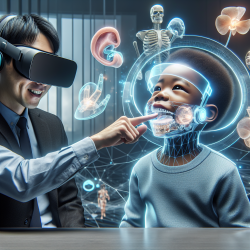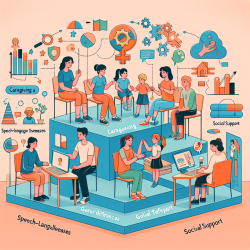In the evolving landscape of mental health care, online therapy has emerged as a vital tool for providing accessible and effective support. The 100th J Project Meeting, held in Antalya, Turkey, from March 12-14, 2014, brought together experts to discuss groundbreaking research in various fields, including immunology and therapy. One of the key areas of focus was the intersection of immunology and mental health, offering valuable insights for practitioners in online therapy.
One of the standout presentations was on Immunoglobulin Class Switch Recombination Deficiencies (CSR-D), a group of rare diseases characterized by normal or increased serum IgM levels and a significant decrease or complete lack of other isotypes such as IgG, IgA, and IgE. The research emphasized the importance of understanding the complex mechanisms underlying antibody maturation in humans. For online therapists, this highlights the necessity of a comprehensive approach to mental health, considering both psychological and physiological factors.
The meeting also explored the role of genetic approaches in diagnosing Primary Immunodeficiencies (PIDs). Dr. Hans D. Ochs presented on conventional and novel genetic techniques for identifying single-gene defects. This has profound implications for online therapy, particularly in tailoring interventions based on a client's genetic predispositions. For instance, understanding a client's genetic background can help therapists develop more personalized and effective treatment plans.
Another critical discussion was on the differential diagnostic algorithms for PID patients with neutropenia. Dr. Nima Rezaei highlighted the importance of early diagnosis and appropriate treatment to avoid complications. For online therapists, this underscores the importance of early intervention and the need for continuous monitoring and adjustment of therapeutic strategies to meet the evolving needs of clients.
Amos Etzioni's presentation on novel adhesion protein deficiencies also offered valuable insights. These deficiencies, which affect leukocyte adhesion and result in recurrent infections and defective wound healing, can significantly impact a client's mental health. Online therapists need to be aware of such conditions to provide holistic care that addresses both the physical and psychological aspects of health.
Jean-Laurent Casanova's research on life-threatening infectious diseases in childhood due to single-gene inborn errors of immunity provided another layer of understanding. The genetic component of these diseases often results in severe infections that can lead to significant psychological distress. Online therapists must consider these factors when working with clients who have a history of severe infections or genetic disorders.
Stephen Jolles' work on Hyaluronidase Facilitated Subcutaneous Immunoglobulin (SCIG) therapy highlighted the advancements in treatment options for patients with primary antibody deficiency. This research is particularly relevant for online therapists working with clients who have chronic health conditions. Understanding the latest treatment options allows therapists to better support their clients' overall well-being.
Sergey Nejentsev's findings on Activated Phosphoinositide 3-Kinase d Syndrome (APDS) revealed the genetic underpinnings of this immunodeficiency and its association with recurrent respiratory infections and lymphomas. For online therapists, this knowledge is crucial in understanding the broader context of a client's health and providing informed, empathetic care.
In conclusion, the 100th J Project Meeting offered a wealth of knowledge that can enhance the practice of online therapy. By integrating these research findings into their practice, online therapists can improve their skills and provide more comprehensive care to their clients. Continuous professional development and staying updated with the latest research are essential for delivering effective online therapy.
To read the original research paper, please follow this link: Selected Abstracts from the 100th J Project Meeting, Antalya, Turkey, March 12-14, 2014.










